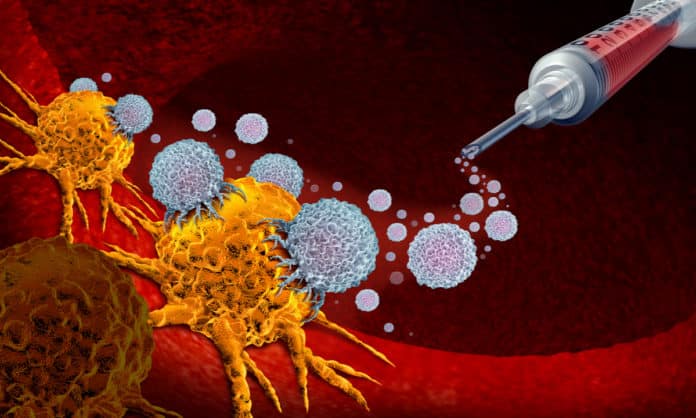Computer Model to Predict Tumor Antigens for Personalized Cancer Vaccine
Scientists are developing a computer model that could enhance the selection of tumor antigens for personalized cancer vaccines now in the clinical trials.
Every human cell expresses special proteins called antigens on the cell surface that represents what’s inside the cell. These antigens promote immune response when attacked by foreign particles or when become rogue cancers. Such antigens are used in vaccines against viral diseases to stimulate the immune response. Likewise, scientists are trying to develop a vaccine against cancers. But that requires the identification of tumor-specific antigens expressed by cancer cells.
The researchers aim to develop an accurate model that would predict antigens on a personalized level. They are closer to achieve the goal.
Antigen diversity
The tumor antigens vary from person to person. The antigen-presenting system in the human sells chops the cellular proteins, bind to human leukocyte antigen(HLA) proteins to display these small sets of protein fragments in the cell surface. The HLA proteins are diverse among people with almost 10000 different HLA proteins present across the human population. This results in the large diversity of surface antigens.
HLA type of person can be determined by a blood test. But knowing the HLA type is not enough to predict the tumor antigens.
Catherine Wu, an oncologist, co-senior author of the research said, If we could predict what tumor antigens are present on a cancer patient’s tumor cell, we would be able to stimulate the immune response of the patient’s body against those cells through a vaccine or another way.
The new computer model to predict the tumor antigens was the result of a collaborative work of Wu and Hacohen with Steven Carr, senior director of proteomics at the Broad, Derin Keskin of Dana-Farber Cancer Institute and others.
The scientists isolated HLA associated protein fragments from 95 human cell lines that included both common and rare types and characterized them using mass spectrometry. The resulting data set of 186,464 protein fragments or peptides were analyzed to find the relationship between HLA types and peptides.
Machine Learning for prediction
The scientists used the machine learning approach to develop the program that determined new rules to predict which antigens are presented by each HLA type. Using machine learning, they identified the key factors that determine which cells present which antigen. The factors consisted of specific sequences in the peptide that allows the binding to HLA type, length of the peptide, their expression levels and other chemical properties.
Unexpectedly, some of the peptides were presented by more than one HLA type. That is good for vaccine development since once the vaccine could be used for many people with the same antigen.
They tested the new model in samples collected from 11 human tumors, one ovarian, three chronic lymphocytic leukemia, four melanoma, and three glioblastomas.”It identified nearly twice as many antigens than previous approaches, and correctly predicted more than 75 percent of the HLA-bound peptides that were detected using mass spectrometry,” said Susan Klaeger, a postdoctoral fellow in Carr’s group, and co-first author of the study.
The new model is freely available for other scientists to use and could help scientists to develop not only cancer vaccines but vaccines against infections like HIV also.
The scientists are working towards improving the accuracy of the model and integrate it into the ongoing cancer vaccine clinical trials for personalized vaccines.
Author : Namitha Thampi



